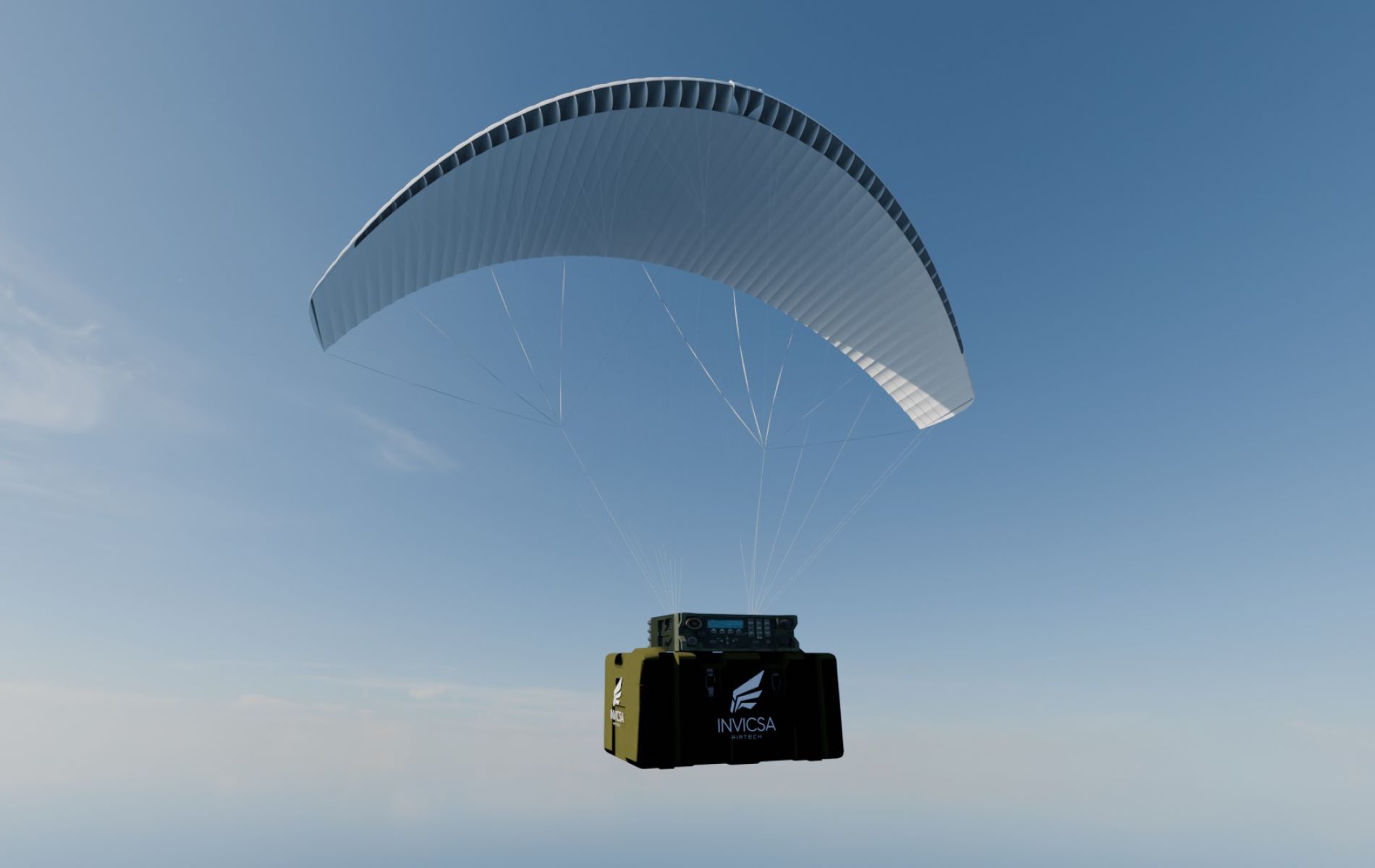Invicsa Airtech, new to the network: “We have the right people to make very good ideas happen”
When Carlos Almanza and his colleagues founded Invicsa Airtech in 2021, space was already an integral part of their vision for the company. With one of the newest ESA Business Incubation Centre (ESA BIC) locations opening last year in Castilla y Léon, Spain, the drone operations company secured support for its first ventures into the space industry.
From hobby to business
Carlos’ interest in drones reaches back many years: “We have been flying drones for over a decade, but at some point, we realised that there isn’t really an added value to just flying drones, it’s just our hobby.” Carlos and his team decided to equip their drones with measurement tools like thermal cameras and audiovisual, ready to collect valuable data during flights.
Invicsa Airtech was conceived by combining extensive drone piloting experience, added sensors, and space data. The company, now counting a team of nine people, leverages drone technology to offer services in several different sectors, including inspections and collecting audiovisual material for sporting events, advertisements, or film productions. From geospatial data collected by their drones, the team can help create 3D models of land, buildings and structures. Looking back at the last three years, Carlos is thrilled about Invicsa Airtech’s developments. “We are very happy with the big changes we are suffering every day,” Carlos says with a laugh. “It’s part of the life of the startup just to be able to change, to adapt and to react to the different environments you are in and not always focus on your idea.”
This mindset was also what ultimately encouraged the team to join ESA BIC Castilla y Léon, the third BIC location in Spain. This proved to be the perfect opportunity for Invicsa Airtech: “Entering into the space industry has always been one of our wishes, but it’s traditionally quite difficult to get in.” In the past, the team had searched for space-related projects and aimed to develop space-grade technologies. At ESA BIC, they finally found space to delve deeper into these ideas.
Building the local space community
Invicsa Airtech’s founders are all from the city of Léon, an area of Spain that Carlos believes has great potential in the industry: “I think we have very good facilities, we have the industry, we have the university. Humbly, I would say we also have the right people to make very good ideas happen. Having the ESA BIC as a framework, it facilitates a lot for people like us to take this kind of opportunity.”
Offering drone pilot training courses, Invicsa Airtech is also locally helping strengthen the community, often in collaboration with nearby universities. Carlos highlights that, next to helping people widen their expertise, this also forms an excellent opportunity to meet new partners. Surprisingly, many of Invicsa Airtech’s students are not from the aerospace sector, but from agriculture, mining, or architecture with various needs for drones. Carlos is thrilled with these interdisciplinary learnings: “We were not experts in agriculture or audiovisual fields, but now we offer these services. So that’s how we have this multicultural network and we build a lot of relationships together.”
Over the past year, Invicsa Airtech has had their fair share of successes: in a project working with San Sebastian Airport, the engineers developed a drone-supported method to detect foreign objects on the plane’s runways. Such objects can pose major threats to planes and are usually detected manually. Invicsa Airtech’s technology brought together a 5G-connected drone with an artificial intelligence system to detect objects, successfully contributing to the airport’s safety.
A new chapter with ESA BIC
While they hope to continue this collaboration with airports in the future, the engineers of Invicsa Airtech are working on a new project called Paratech for their ESA BIC incubation. While normally, parachutes have very low landing precision, this artificial intelligence-guided parachute aims to alleviate these issues. Using their knowledge, experience, and systems used in the space industry, Invicsa Airtech is developing landing systems that help improve the accuracy of parachute landings. Like this, dangerous situations resulting from parachutes ending up in the wrong places can be reduced.

Carlos and his colleagues only recently joined the ESA BIC network, but the participation has already proved useful for the startup. Getting all their previous work into order and organising everything in a structured way helped the team “focus on what’s important.” Carlos further emphasises the importance of presenting their ideas to the representatives of the ESA BIC and the Spanish Space Agency and hearing their feedback.
By being in the incubator, Carlos and his colleagues are excited to be part of the environment: “We alone are able to develop some technology, but there has to be a need for it.” Especially collecting opinions from potential clients, suppliers, but also competitors are key to a well-developed and focused product, Carlos summarises.
The upcoming year holds many opportunities for Invicsa Airtech, including simulations and testing for their Paratech project. Carlos shares his thoughts about the future: “I hope that our technology will help others in the future, both technologically speaking and that our participation in Castilla y Léon also helps other people in the area to join the aerospace industry and we can build a good environment here.”
This article was written for the occasion of the 20 years anniversary of ESA BIC in Europe.
For the full overview of this celebration, go to the LinkedIn group by clicking on the button below.